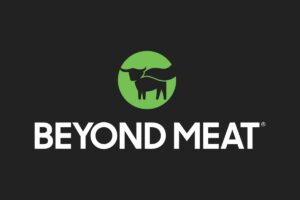After seeing a period of losses Beyond Meat has had a significant rise in market share following company-wide changes.
 Beyond Meat shares were up about 66% from their December low by the end of trading on Friday, after seeing a sustained period of losses throughout 2022. Currently shares of Beyond Meat cost $18.88 after dropping as low as just barely above $11 in December.
Beyond Meat shares were up about 66% from their December low by the end of trading on Friday, after seeing a sustained period of losses throughout 2022. Currently shares of Beyond Meat cost $18.88 after dropping as low as just barely above $11 in December.
Beyond Meat CEO Ethan Brown says that “[Q4 was a] challenging year for our business and category, one marked by persistently high inflation and trading down by consumers among proteins, slowing economy in key markets, and increased competitive activity.” Brown says the company is “transitioning our business to one that prioritizes cash flow and sustainable long-term growth”, stating that the company’s restructuring plan has reduced expenses by nearly one-third.
Brown announced a three-prong strategy for 2023:
- Margin recovery and operating expense reduction, dropping from eight co-manufacturers in North America in 2022 down to three, reducing exposure to underutilization or idle time penalties.
- Inventory reduction.
- Targeted discounts and more focused marketing to specific consumer demographics, expanding the frozen range.
When asked why the company is focusing on discounting rather than delivering substantial volume benefits, Brown said: “With the pricing programs we’re testing now, we’re seeing very good unit velocity responses, and some pretty solid revenue gains. We’re coupling our pricing with those types of messages for the right consumer in the right demographic. Instead of offering a blanket discount, we’re looking at segments where the consumer is far more interested in our value proposition.”
Brown added that “For folks that are 40 and older, it tends to be around the health messages; for folks who are younger, they are much more receptive to climate messaging.”
“I want to emphasize the transition that’s occurring in Europe with the consumer. If you look at Germany, over the last 10 years, there’s been a remarkable reduction in animal protein consumption on a per capita basis,” said Brown. “And I think that bodes very well for what we’ll see in the United States at some point.”
